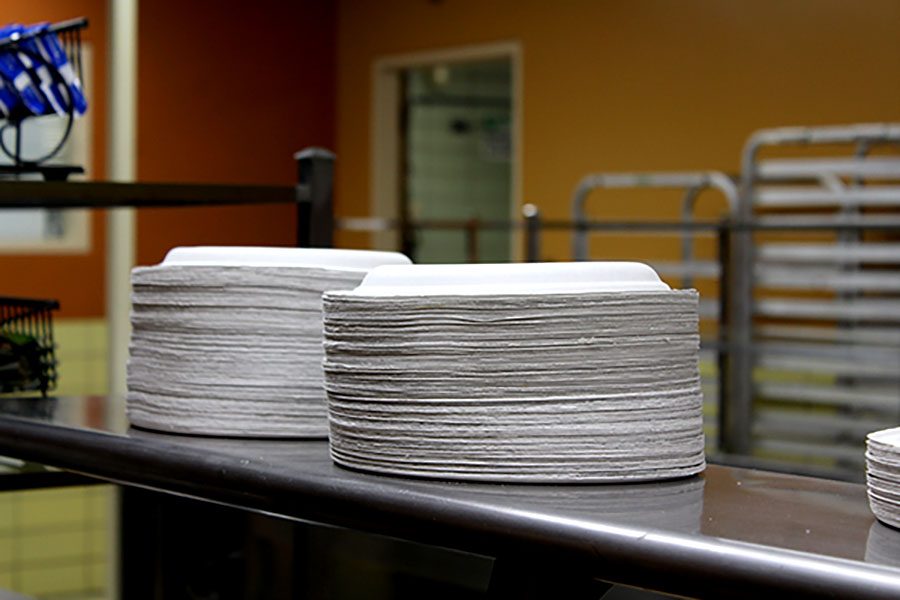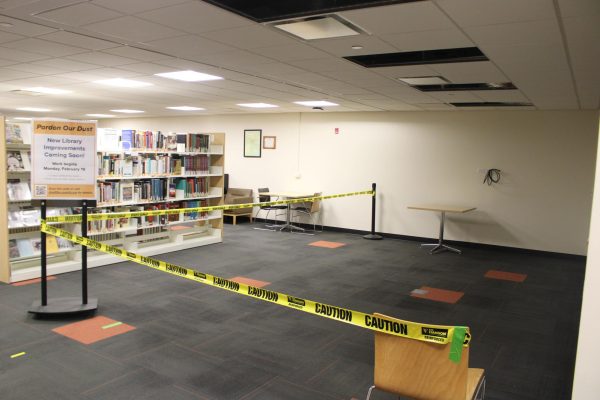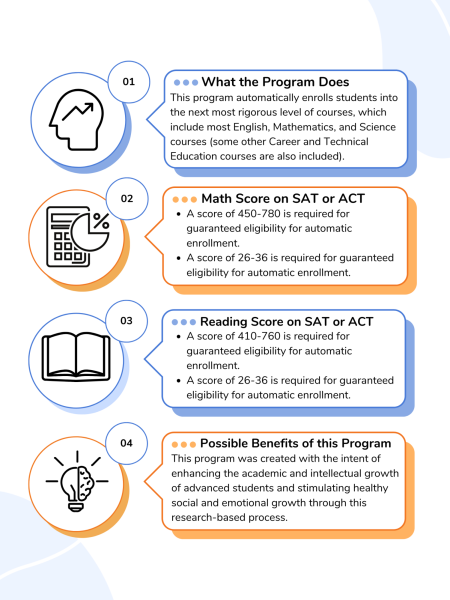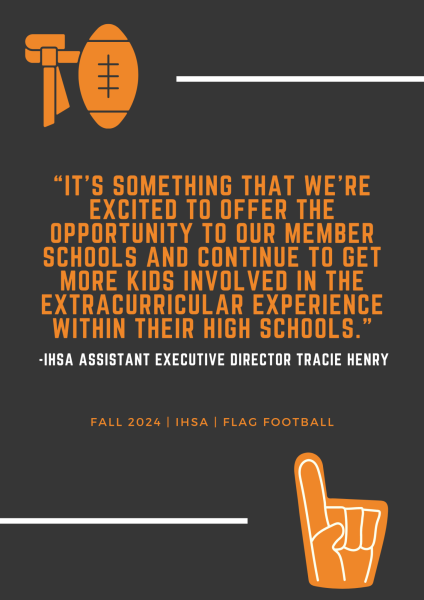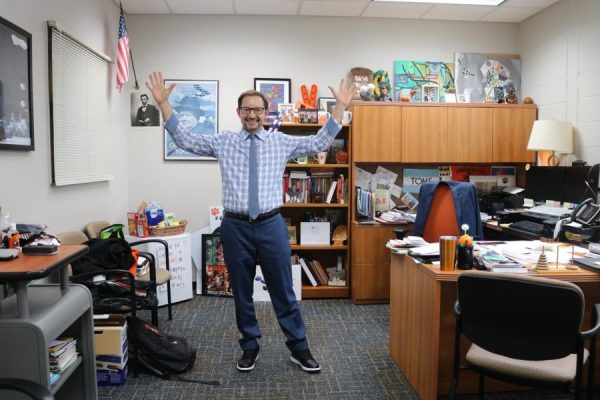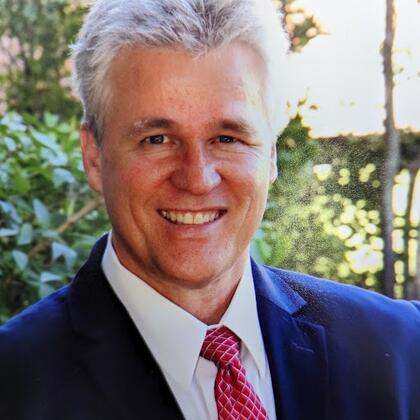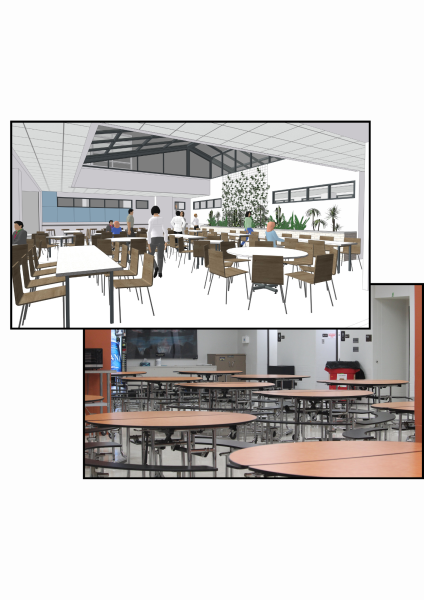LHS makes an effort to be environmentally friendly
Styrofoam plates in the cafeteria were recently replaced by paper pulp plates in order to limit the school’s waste.
A new school year always brings about changes, and this year, students with a passion for protecting the planet and limiting the school’s impact on the environment are taking it upon themselves to make the school more eco-friendly.
Leah Hartung, a senior and co-president of the school’s environmental club, Libertyville Environmental Action Force, or LEAF, has worked to substitute the styrofoam plates and cups used in the cafeteria with paper products. Styrofoam takes at least 500 years to decompose in a landfill, according to Hartung, and for every student who buys lunch or gets a cup of water in the lunchroom, the amount of waste produced at the school adds up.
After Hartung contacted the principal, Dr. Tom Koulentes, it was resolved with the food service director, Mr. Daniel Lyon, to replace the styrofoam plates with paper pulp plates. Paper pulp is, according to the Environmental Protection Agency, completely recyclable. The switch to paper pulp plates has already been made in the cafeteria.
Hartung encouraged students to consider their individual impact on the earth and conscientiously think about the amount of the waste they are producing. “When you look at the end of life, like, when you are looking back, I don’t think you want your biggest impact to be how much waste you left on the world,” she said.
This year, the members of LEAF also made the decision to give up the separate recycling of aluminum, according to the club’s advisor, Mr. Dave Lapish.
In the past, the club brought the aluminum to a scrap yard to make money. Mr. Lapish expressed that this separate recycling took up a lot of time, and with the whole school involved in recycling class bins once a week during third period (which includes aluminum recycling), the club resolved to look into new areas of focus.
Although recycling is still of great importance and a focus of the club’s, they now have a greater opportunity to explore other possibilities and projects to improve the school.
Mr. Lapish noted that “[he is] proud of this year’s group of leaders because many of them have decided to take it upon themselves to take the initiative to do things, and it’s been fantastic so far.”



